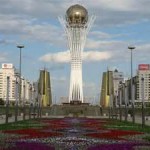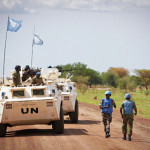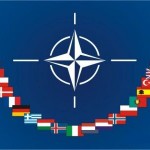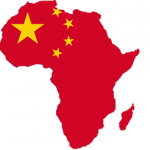“Global Integration as Seen Through the Lenses of the Ideologies of the International Political Economy” by Kapok Tree Diplomacy
Preview Written April 2010
Section One – Conceptions of IPE
Main Actors and Their Goals. Dunne and Schmidt state that “Realism identifies the group as the fundamental unit of political analysis” and “the state as the legitimate representative of the people” (93), while other actors such as international organizations (IGOs) or multinational corporations (MNCs) have lesser prominence (103). Realists view the international system as competitive and inherently anarchic, thus driving states to “simultaneously pursue wealth and national power” under the principle of self-help (Gilpin 425). Some realists argue that states are power maximizers, while others argue they are security maximizers (Dunne & Schmidt 101). The end goal in either case is survival, and economic success is central to each strategy.
Liberals position the “individual consumer, firm, or household” as the main actor within IPE. Gilpin asserts that the “primary objective of economic activity (for liberals) is to benefit consumers” by using free market principles for “organizing and managing a market economy in order to achieve maximum efficiency, economic growth and individual welfare” (421). Goal attainment is furthered by these actors peacefully cooperating in a way that allows supply and demand to settle into a natural, stable equilibrium (Gilpin 422). Other groups like IGOs and MNCs compete for centrality with states “through multiple channels of interaction”(Dunne 115).
The main actors within Marxism are social classes, principally the bourgeoisie upper class who owns the economic means of production and the proletariat lower class who works for the bourgeoisie (Lynch 537-539). The goal of the bourgeoisie is wealth accumulation for themselves and increasing power and profits for their class while subjugating the proletariat in the process. Gilpin notes that Lenin reformulated Marxism to the extent that “the principal actors in effect became competing mercantilistic nation-states driven by economic necessity” (430). Whether the main actors be classes or states, the goal is the same in Marxism – maximization of elitist interests.
Policies and Views on International Relations. Gilpin asserts that the “foremost objective of nationalists is industrialization” as it is the “basis of military power and central to national security” (“Three” 425). Realists, or economic nationalists or mercantilists (as referred to in IPE terminology), also emphasize national self-sufficiency which may result in protectionist measures to insulate infant or declining industries (Gilpin,”Three”, 426). James Fallows points out how politics drives economics in nationalism by comparing it to liberalism and illustrating the importance of “deliberate development,” production over consumption, results over process, “business as war” over “business as peace,” and national interests over individual interests (61-87). In realism, states seek to maximize their sovereign independence through wealth and power.





International and Regional Mechanisms for Holding Human Rights Offenders Accountable
“International and Regional Mechanisms for Holding Human Rights Offenders Accountable” by Kapok Tree Diplomacy
PREVIEW [Includes Table of Contents] Full essay is 2,825 words. 10 pages double-spaced. 12 references
Section One – United Nations Charter-Based and Treaty-Based Bodies
Charter-Based Institutions. These institutions include the UN General Assembly (GA), the UN Security Council (UNSC), the International Court of Justice (ICJ), the Human Rights Council (HRC), and other authorized bodies created by them such as the Commission on the Status of Women (CSW) (Steiner, Alston & Goodman (SAG) 737). “The single most important contribution made by the Charter-based bodies … has been through the elaboration of an ever-growing body of standards designed to flesh out … the norms enunciated in the Universal Declaration” (SAG 742). Each institution differs in its accountability processes. Read more
Share this:
Like this: